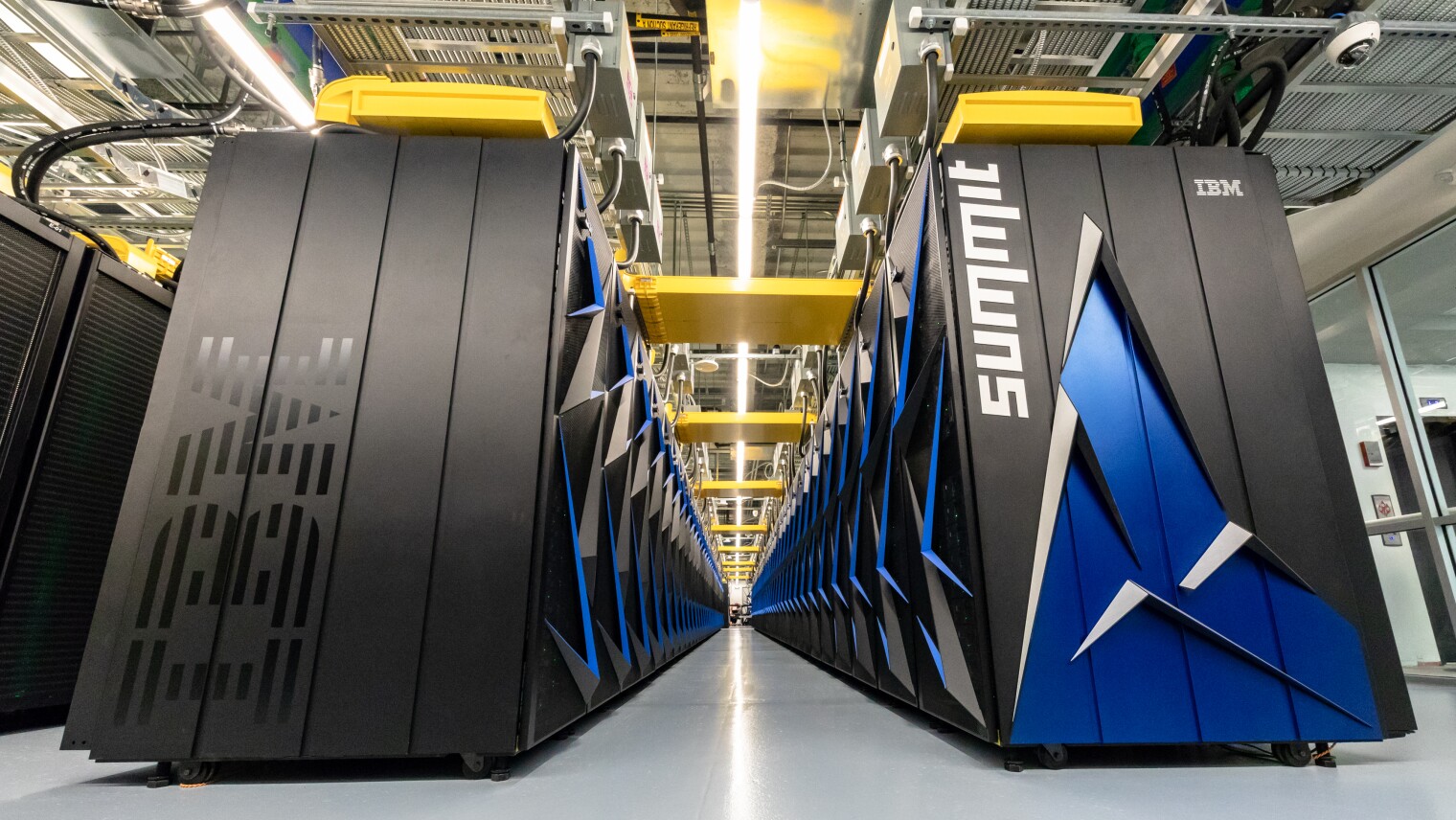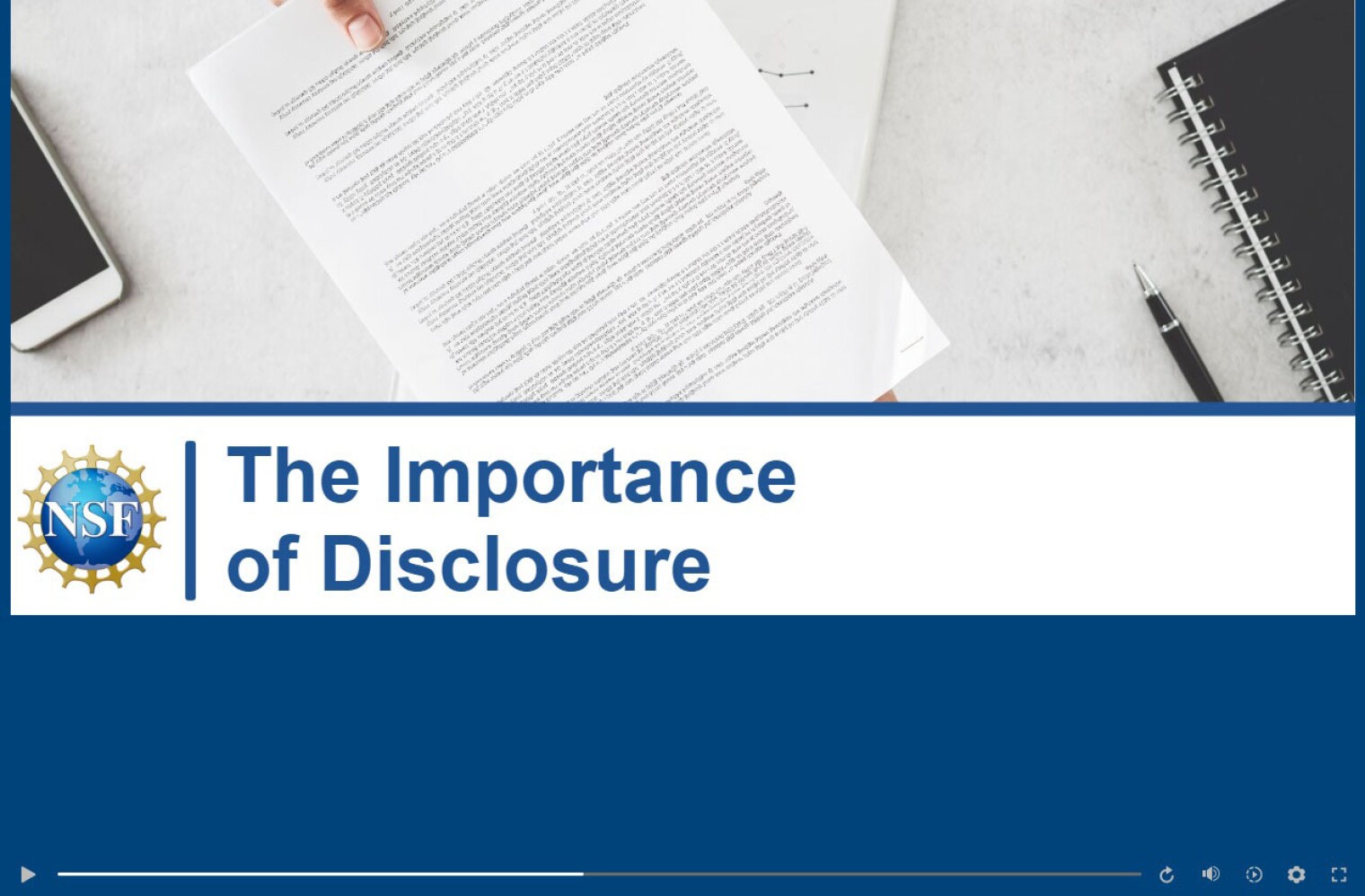| |
| FYI: Science Policy News from AIP |
| THIS WEEK |
|
|
|
|
|
|
| What’s Ahead |
 |
| Summit at Oak Ridge National Lab is among the supercomputers that AI researchers can apply to use through the pilot National AI Research Resource launched in January. (Carlos Jones / ORNL) |
AI Research Infrastructure to be Focus of House Hearing
The House Science Committee will hold a hearing Tuesday on how federal science agencies are supporting research in artificial intelligence and how AI can be used to accelerate scientific discoveries in a variety of fields. The hearing will focus on the National Science Foundation’s launch last month of the pilot National AI Research Resource (NAIRR), which offers AI researchers access to supercomputing resources, data, and training materials. Witnesses for the hearing are Tess deBlanc-Knowles, special assistant to the director for artificial intelligence at NSF; Georgia Tourassi, associate lab director for computing and computational sciences at Oak Ridge National Lab; Chaouki Abdallah, executive vice president for research at Georgia Tech; Louay Chamra, dean of Oakland University’s School of Engineering and Computer Science; and Jack Clark, co-founder and head of policy at the AI safety company Anthropic. Oak Ridge’s Summit supercomputer is among the resources available through NAIRR, and Anthropic is one of the private sector partners for the pilot. Separate from its support for NAIRR, Oak Ridge and other Department of Energy national labs have advocated for DOE to play a much larger role in developing AI applications relevant to science, energy technology development, and national security.
New Senate Security Package Faces Long Odds in House
A bipartisan group of senators released legislation over the weekend containing more than $100 billion in total for assistance to Ukraine, Israel, and new security measures for U.S. borders. It also would tighten policies governing illegal immigration while raising the cap on immigrant visas by 250,000 over five years, of which 90,000 would be for employment-based visas. The legislation would also grant work authorization to spouses and children of H-1B visa holders. President Joe Biden quickly endorsed the legislation, but top Republicans in the House registered strong opposition to the bill, arguing it does not do enough to stem illegal immigration. The Senate intends to take an initial vote on the legislation this week. Among its spending provisions, the legislation would permit the Department of Energy to spend up to $2.7 billion on domestic uranium enrichment initiatives by diverting funds appropriated by the Infrastructure Investment and Jobs Act for the Civil Nuclear Credit Program, which supports ailing nuclear power plants. The legislation also includes $98 million for the DOE Office of Science to acquire equipment for producing radioactive isotopes.
R&D Tax Credit Expansion Bill in Senate’s Court
Legislation that would strengthen the R&D tax credit and the child tax credit passed the House last week by a bipartisan vote of 357-70 and now awaits action in the Senate, where it is expected to face procedural and political hurdles. If enacted, the Tax Relief for American Families and Workers Act of 2024 would permit businesses that conducted U.S.-based R&D between the end of 2021 and the start of 2026 to immediately deduct these expenses, rather than spreading them out over a five-year period – a process known as amortization. The requirement to amortize R&D expenses was introduced in the 2017 tax reform law and came into effect in 2022. Business groups have lobbied extensively for Congress to rescind the amortization requirement, arguing that it makes them less competitive globally. The 2017 law also introduced a 15-year amortization requirement for R&D conducted abroad, which the tax bill now under consideration would leave in place.
NASA to Launch Earth Science Satellite
Early Tuesday morning, NASA plans to launch the Plankton, Aerosol, Cloud, ocean Ecosystem (PACE) satellite, which will study phytoplankton growth and how the ocean and atmosphere exchange carbon dioxide. PACE was one of the NASA missions that the Trump administration repeatedly tried to cut in an effort to reduce the agency’s role in environmental research. The satellite is expected to operate for at least three years and has an expected lifecycle cost of nearly $1 billion.
|
|
| In Case You Missed It |
 |
| Slide from a training module on the importance of disclosing information during the grant application process. (National Science Foundation) |
Research Security Training Modules Released by NSF
Last week, the National Science Foundation released four interactive modules that research institutions can use to meet an impending requirement that certain personnel working on grants from science agencies receive security training. The four modules respectively cover fundamental concepts of research security, the importance of disclosing outside affiliations and sources of research support, risk mitigation methods, and the importance of international collaboration. The CHIPS and Science Act requires institutions to certify that certain grant personnel have taken research security training. An NSF spokesperson indicated that using all four modules is sufficient to comply with the requirement but emphasized that institutions can opt to use their own training materials.
DOE Updates Scientific Integrity Policy
The Department of Energy released a new scientific integrity policy on Jan. 19 that adds some new requirements but does not significantly alter the processes that researchers must follow. For instance, the new policy states that DOE personnel cannot “suppress, unduly delay, or alter scientific or technological findings” for reasons such as “political purposes.” The old policy does not explicitly identify political purposes as an example of an unacceptable motivation, nor does it explicitly mention undue delay as an unacceptable practice. The new policy also contains a new section that raises awareness of whistleblower protections and adds a requirement that DOE produce an annual report on the state of scientific integrity at the department. These and other provisions aim to bring the policy into alignment with the Framework for Federal Scientific Integrity Policy and Practice put out by the National Science and Technology Council in 2023. Other agencies, such as the Environmental Protection Agency and National Institutes of Health, have also recently published draft revisions to their integrity policies in response to that report and an associated executive order.
Delay in Anti-Harassment Policies Flagged by Science Committee
Leaders of the House Science Committee sent a letter to the White House last week registering concern that it has not met deadlines for anti-harassment provisions in the CHIPS and Science Act. Committee Chair Frank Lucas (R-OK) and Ranking Member Zoe Lofgren (D-CA) wrote that the Office of Science and Technology Policy has not yet produced an inventory of anti-harassment policies, procedures, and resources across science agencies, a prerequisite for creating cross-government guidelines. The act requires these guidelines to be released within six months of the completion of the inventory. Separately, eight science societies sent a letter to OSTP in December 2023 that also raised concern about OSTP’s “lack of public action” on the inventory. (Three AIP Member Societies are signatories of that letter.)
Podesta to Replace Kerry as Climate Envoy
The White House announced last week that long-time Democratic strategist John Podesta will become the U.S.’ top climate envoy once John Kerry steps down from the role, which he plans to do by early spring. Podesta currently works in the White House overseeing clean energy spending under the Inflation Reduction Act and Infrastructure Investment and Jobs Act, and he intends to retain that portfolio in his new role. Podesta will hold a different title than Kerry, serving as senior adviser to the president for international climate policy at the White House instead of U.S. special presidential envoy for climate at the State Department. That change evades a requirement Congress set in 2022 that State Department special envoys be confirmed by the Senate.
Quad STEM Fellowship Expanded to ASEAN Countries, Management Changed
The Quad Fellowship, a program that sponsors citizens of Australia, Japan, and India to pursue STEM graduate degrees in the United States, has been expanded to include students from ASEAN, a group of 10 countries in Southeast Asia. The move was announced last week by the International Institute for Education, which has taken over management of the fellowship from Schmidt Futures, a philanthropic organization founded by former Google CEO Eric Schimdt. Schmidt Futures’ management of the fellowship attracted scrutiny in part due to concerns that Schmidt was too close to the Biden administration. The International Institute for Education is a non-profit that manages international fellowship programs such as the State Department’s Fulbright program.
|
|
| Upcoming Events |
All events are Eastern Time, unless otherwise noted. Listings do not imply endorsement. Events beyond this week are listed on our website.
Monday, February 5
Tuesday, February 6
Wednesday, February 7
Thursday, February 8
Friday, February 9
No events.
Monday, February 12
Know of an upcoming science policy event either inside or outside the Beltway? Email us at fyi@aip.org.
|
|
| Opportunities |
|
Deadlines indicated in parentheses.
Job Openings
Solicitations
Know of an opportunity for scientists to engage in science policy? Email us at fyi@aip.org.
|
|
| Around the Web |
|
News and views currently in circulation. Links do not imply endorsement.
White House
Congress
Science, Society, and the Economy
Education and Workforce
Research Management
Labs and Facilities
Computing and Communications
Space
Weather, Climate, and Environment
Energy
Defense
Biomedical
International Affairs
|
|
|
| |
| This message is sent to you because you signed up for one of our newsletters. To manage your AIP email preferences and newsletter subscriptions ( add or remove ), please click here. Or to automatically unsubscribe from all AIP emails, click here. As a 501(c)(3) non-profit, AIP is a federation that advances the success of our Member Societies and an institute that engages in research and analysis to empower positive change in the physical sciences. The mission of AIP (American Institute of Physics) is to advance, promote, and serve the physical sciences for the benefit of humanity. |
|
| © 2025 American Institute of Physics. |
AIP, 1 Physics Ellipse, College Park MD 20740-3841
301.209.3100 - newsletters@aipcomm.org |
|
|